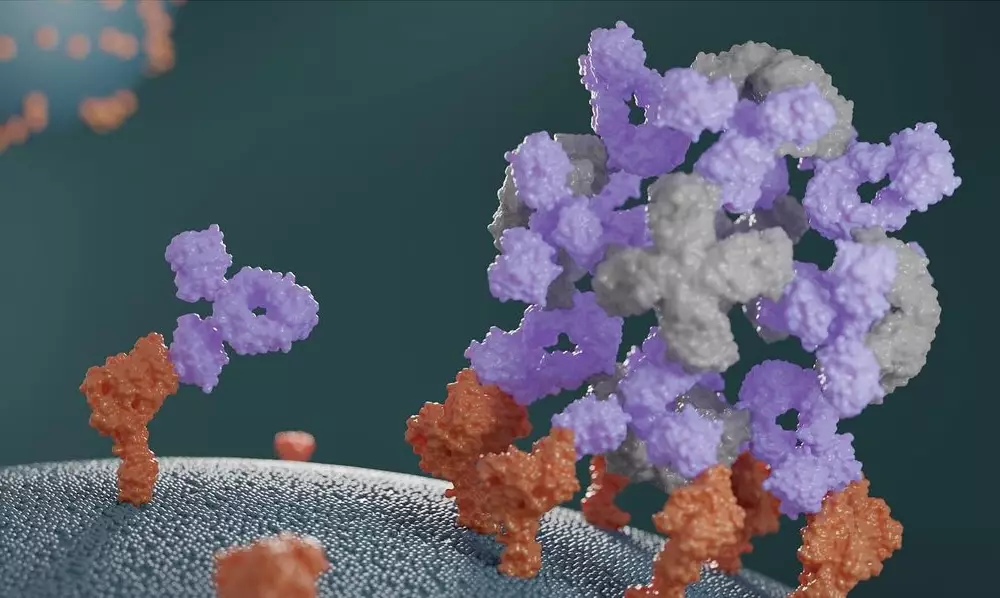In the rapidly evolving field of biotechnology, the introduction of innovative companies like Archon Biosciences signifies a promising future. Recently emerging from stealth mode, this Seattle-based startup has successfully secured an impressive $20 million in seed funding. Backed by a strong foundation in artificial intelligence (AI) and cutting-edge research from the University of Washington’s Baker Lab, Archon is poised to transform the landscape of antibody treatments. The groundbreaking concept revolves around the use of uniquely designed protein “cages”—or antibody cages (AbCs)—which aim to enhance the effectiveness of existing therapies.
The core of Archon’s innovation lies in its design of antibody cages. By utilizing these cages, the company seeks to address a significant limitation within antibody treatments—unpredictability. In traditional molecular biology, the binding affinity of proteins to their respective targets varies widely due to multiple factors, often leading to inconsistent results in drug efficacy. Archon’s platform offers a comprehensive solution by effectively increasing the likelihood of an antibody binding to its target through a smart, structural enhancement. The visualization of a dozen antibodies clustered together in a geometrical formation, such as a dodecahedron, illustrates how this design significantly amplifies the chances of a successful interaction, potentially dictating therapeutic outcomes in clinical settings.
Insights from Pioneering Leaders
James Lazarovits, co-founder and CEO of Archon, has articulated the vision driving this biotech startup. In a public statement, Lazarovits emphasized the obstacles faced in drug development, particularly where existing treatments have fallen short. The ability to engage with biological targets safely and effectively is crucial, and Archon’s proprietary protein design platform is positioned as a key tool in this endeavor. By leveraging generative protein design methods developed at Baker Lab—a facility known for its pioneering work in computational biology and innovative protein engineering—Archon combines theoretical advancements with practical applications to create novel therapeutic solutions.
Another critical element differentiating Archon Biosciences from traditional biotechnology firms is its focus on scalability and practical manufacturing processes. Unlike many approaches requiring specialized and exotic fabrication methods, Archon’s antibody cages can be produced using standard protein and antibody synthesis techniques that are already established in the industry. This pragmatic approach not only streamlines the manufacturing pipeline but also enhances accessibility and cost-effectiveness, which are essential factors in bringing new treatments to market faster and more efficiently.
Investment and Future Directions
The securement of $20 million in funding marks a significant milestone for Archon. Led by Madrona Ventures and supported by several other venture capital firms, this investment demonstrates strong confidence in the startup’s potential to generate transformative biological applications. Additionally, the company has benefited from approximately $7 million in grants from various institutes and governmental entities, further underpinning its credibility and future prospects. As Archon simplifies and enhances biologics development through its technology, the implications extend beyond the immediate realm of antibody therapies—potentially revolutionizing treatments across a plethora of diseases.
As Archon Biosciences carves its path in the biotechnology sector, the company’s commitment to utilizing AI-driven platforms coupled with innovative design methodologies positions it as a promising frontrunner. A visit from TechCrunch and other media outlets further underscores the interest in Archon’s research and development journey, hinting at a broader narrative that will resonate within the global biotech community. The company’s focus on maximizing therapeutic effects through structural innovation might pave the way for future advancements in treatment options, showcasing the critical intersection of artificial intelligence and biological sciences. As awareness of Archon grows, the impact of its contributions—both clinically and economically—will be keenly observed in the coming years.

